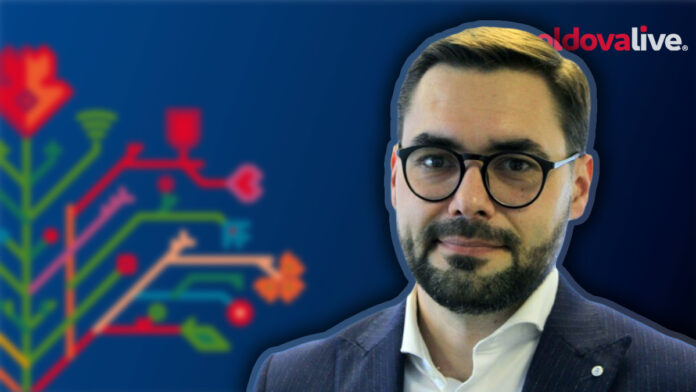The European Political Community Summit, which will take place on June 1st, 2023, represents an important diplomatic support for Moldova, reaffirming the support for Moldova’s accession to the European Union and the firm commitment to contribute to a peaceful, stable and prosperous Europe. This was stated by the Executive Director of the Institute for European Policies and Reforms (IPRE) and former Deputy Minister of Foreign Affairs and European Integration of Moldova, Iulian Groza.
In an interview with IPN, Iulian Groza spoke about the main expectations and stakes of the future European Political Community Summit in Moldova.
“The European Political Community Summit in Moldova represents a unique opportunity for EU member states and non-EU countries alike to come together to strengthen their cooperation on common objectives and interests. The reconstruction of Ukraine should be an implicit topic on the agenda, as concrete infrastructure and connectivity projects at the regional level need to be discussed. While planning for future connectivity, infrastructure, and reconstruction projects, specific outcomes that will benefit people should be the main objective of the future summit. To achieve this objective, the EU must play an essential role in shaping and supporting the initiatives of the European Political Community. This role will be crucial in promoting increased cooperation and integration throughout the continent,” said Iulian Groza.
In view of the meeting on June 1 in Moldova, a series of recommendations could contribute to revitalizing this European project based on common values and interests, promoting cross-border cooperation, and strengthening Europe’s capacity to respond to crises, security incidents or natural disasters.
FOR THE MOST IMPORTANT NEWS, SUBSCRIBE TO OUR TELEGRAM CHANNEL!
Eliminating disparities in Europe: The participating countries in the European Political Community should focus on strengthening connectivity and reducing gaps between Western, Eastern, Northern and Southern countries, as well as between EU member states and non-EU countries, by promoting cooperation in critical areas. The EU should build on the expansion of existing regional cooperation initiatives, such as the Three Seas Initiative.
Increasing energy connectivity: The European Political Community should explore ways to increase energy interconnection on the European continent to enhance energy security and achieve green energy goals. This could include expanding the Energy Community Treaty to all European Political Community countries, accelerating interconnection of natural gas and electricity, and developing a European “Super-Grid” that leverages the EU’s Mechanism for Interconnection in Europe.
Expanding the Solidarity Corridors: Improving the solidarity corridors will be essential for facilitating supply routes to and from Ukraine. This could include modernizing and maintaining key routes, further extending the trans-European transport networks to Ukraine and Moldova, and simplifying and harmonizing customs procedures. An important aspect that may require more attention is the southern corridor and its impact on connectivity, including Moldova’s role in it.
New youth and worker mobility programs: The European Political Community countries should consider consolidating interpersonal contacts and mobility in Europe. The EU has already developed a series of programs at the EU and associated state levels. The EU could further expand these initiatives to non-EU countries to promote better cooperation.


